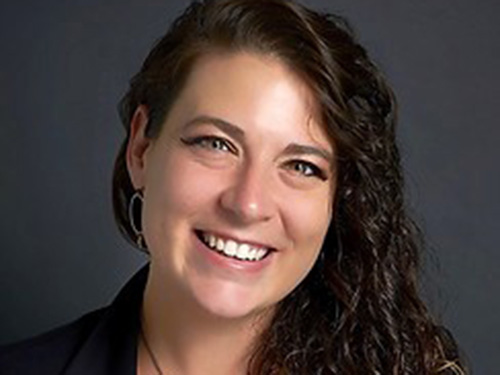Cassandra Callmann, Ph.D. – University of Texas at Austin

About Dr. Callmann:
Dr. Cassandra Callmann holds the position of Assistant Professor and CPRIT Scholar in Cancer Research within the Department of Chemistry at the University of Texas at Austin. Her academic journey began with a Bachelor of Science degree in Biochemistry from West Chester University in 2012, followed by the completion of her Master of Science in 2014 and Ph.D. in 2018, both in Chemistry, from the University of California, San Diego. Her passion for mentoring students and her enthusiasm for scientific exploration ultimately led her to independent academic research. Following her postdoctoral work at Northwestern, she became an assistant professor and CPRIT Scholar at UT-Austin. As a professor, Dr. Callmann derives fulfillment from various aspects of academic life. Among these, mentoring students and observing their growth firsthand stand out as particularly rewarding experiences. Whether guiding graduate students through their research endeavors or instructing undergraduates in organic chemistry, she takes pride in imparting knowledge and nurturing critical thinking skills.
Research interest:
Drawing upon her background in organic chemistry and biochemistry, Dr. Callmann's research endeavors center on glycopolymers and their significance in diverse biological processes. Glycans are recognized for their pivotal role in biological signaling, facilitating crucial interactions between cells and molecules that govern numerous physiological functions. Leveraging controlled/living polymerization chemistries, her research group synthesizes precision glycopolymers (PGPs) for their use as tools to interrogate glycan-mediated biological processes. Through precise control over synthesis, Dr. Callmann investigates the impact of the size and structure of PGPs on biological systems, with a particular emphasis on cancer research.
Wyatt instrument contribution:
"When it came to purchasing a GPC-MALS setup, I was adamant that the light scattering detector had to be from Wyatt."
Throughout her academic career, Dr. Callmann has relied on Wyatt Technology's MALS detector, a tool she first encountered during her graduate studies. Given her focus on novel glycopolymers, the DAWN's capability to provide accurate molecular weight characterization without the need for reference materials proves indispensable.

Every single time we make a polymer, we put it through the GPC-MALS, and we use the Wyatt software to analyze it.
